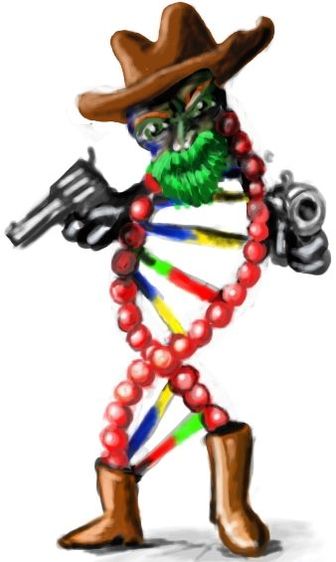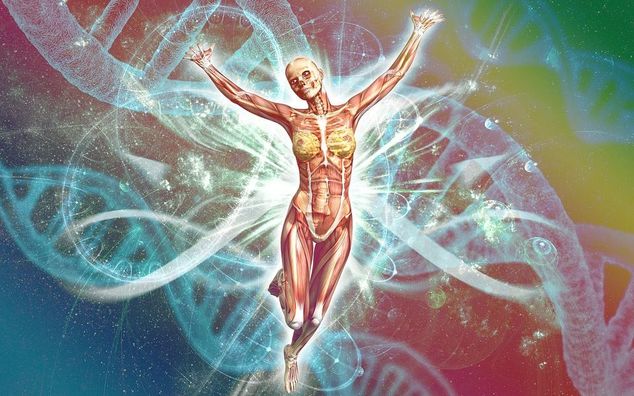GENETICS -VS- EPIGENETICS
CAN WE REALLY BLAME OUR POOR HEALTH ON THE FAMILY TREE?
“
One of the promises of the human genome project was that it could revolutionize our understanding of the underlying causes of disease and aid in the development of preventions and cures for more diseases. Unfortunately, genetics has been found to account for only about 10% of diseases, and the remaining causes appear to be from environmental causes. So to understand the causes and eventually the prevention of disease, environmental causes need to be studied.“ From our government’s own Centers for Disease Control (CDC) website (Expososome and Exposomics).“The gene proposes, the environment disposes. Genes load the gun but the environment pulls the trigger.” – Dr. Francis Collins, Director of the National Institutes for Health (NIH), quoted from his time as Genetics Professor at the University of Michigan’s School of Medicine
Although we can never completely discount genetics, it is not the scapegoat that science led us to believe it was for so many decades. After FRANCIS CRICK discovered DNA back in 1953, everyone thought that it was only a matter of time until there would be no more sickness and disease. This isn’t much different than scientists telling the public that the discovery of germs, and later ANTIBIOTICS, would soon lead to disease being wiped off the face of the earth (HERE). And it’s not much different than what we saw with the Human Genome Project.
The YEAR I GRADUATED FROM HIGH SCHOOL (1984), our government decided that it would be possible to map the human genome. Starting in 1990 at universites around the world, researchers began sequencing the more than 3 billion nucleotides that make up our genome. The project cost billions and was completed a bit over a decade ago. Part of the push was that in similar fashion to LBJ’s claims a couple decades earlier, this project would result in sickness and disease being wiped off the face of the globe. But what do we see today instead?
Despite our amazing technological and scientific advances, the American people are not only sicker and fatter than any point in our nation’s history, we are collectively some of the chronically sickest and fattest people in history. How can this be, when DARWIN’S THEORY told us that humans as a species should be getting better and better and better — “progressing towards perfection,” as Darwin himself wrote? Although we can’t completely throw the baby out with the bathwater in this discussion of genetics, there must be other factors at play. And there are. Forget genetics for a moment, let’s discuss something much more important — Epigenetics.
EPIGENETICS
WHY YOU ARE NOT RULED / DEFINED BY YOUR GENES
“The fledgling field of epigenetics is now showing how two organisms with identical genetic sequences can have different characteristics because of heritable non-DNA factors that alter the behavior of genes. The search for simple ‘genetic mutations’ as the cause of disease predictably fails again. As you shall discover, in contrast to getting better and allowing better explanations with time, the ‘genetic theory of disease’ gets worse with time. Even the most brilliant researchers will never accomplish their goals because they all start in the wrong place. Mutations are caused by epigenetic adulteration (environmental causes altering the behavior of genes but not necessarily the structure). So indeed, The genome contains far more inconvenient truths than was supposed a decade ago. The very idea of what we inherit and what we pass on has changed.” Dr. Brian Peskin writing for a 2011 issue of the Cambridge International Institute for Medical Science (The Good News: It’s Not Genetic)
“Everything is Inflammation.” Dr. Jay Robbins at a Standard Process seminar a few years ago.
In order to show you why there is more to what diseases you may or may not develop than what genes you have, we need to understand EPIGENETICS, and to do that, I am going to discuss CROHN’S DISEASE. Listen to what the NIH’s National Genome Research Institute says about Crohn’s Disease. “
Children who have one parent with Crohn’s disease have a 7 to 9 percent lifetime risk of developing the condition. They also have a 10 percent chance to develop some form of inflammatory bowel disease. When both parents have inflammatory bowel disease, the risk for their children to develop Crohn’s disease is 35 percent.” If both parents have the gene, why is there only about a 1 in 3 chance of the child getting the disease? In other words, the gene is present. Why isn’t it being expressed? It has to do with the final three words from the first quote at the very top of the page, “environment and lifestyle“.There are genetic diseases that are 100% genetic (Hemophilia, Cystic Fibrosis, Marfan Syndrome, Sickle Cell, etc, etc, etc). If you have the gene, you have a problem. Period. However, there are other diseases — the vast majority of diseases — that only show up in certain cases. Crohn’s is one of those INFLAMMATORY DISEASES (there are many) that will show up in certain people whose body is making more INFLAMMATION than it should be. Depending on their genetic makeup, other people who are “inflamed” might end up with any number of other diseases. What drives inflammation? The very same things that drive your genes to be “expressed” in manners not congruent with health; “Environment and lifestyle“. What do environment and lifestyle entail? About everything under the sun.
- Are you eating a HEALTHY DIET?
- Are you living the HIGH CARB LIFESTYLE?
- Are you OBESE or overweight?
- Are you EXERCISING regularly?
- Were you a BREAST-FED baby?
- Do you understand the concepts of “GUT HEALTH” or “MICROBIOME“?
- Do you drink enough WATER?
- Are you happy — do you laugh a lot?
- Are you getting enough SLEEP?
- Are you maximally STRESSED?
- Do you have a good marriage?
- Do you have a vibrant SEX LIFE?
- Do you enjoy your job?
- Do you get OUTDOORS in the sunshine regularly?
- Do you worry too much?
- Are you addicted to FOOD or OTHER THINGS?
- Are you DEPRESSED, bitter, or resentful?
- Are you regularly exposing yourself to any number of TOXIC CHEMICALS?
- Do you regularly take pharmaceutical or recreational DRUGS?
- Do you have natural immunity, or were you VACCINATED?
- Have you ever been on ANTIBIOTICS?
- Did you grow up on the FARM OR IN THE CITY?
- Do you regularly get to the CURRENT RIVER?
- Etc, etc, etc, etc, etc, etc, etc, etc, etc, etc, etc, etc, etc, etc, etc, etc, etc, etc, etc…….
The point is, I could have created a book-like list, and still not covered all the bases. There are any number of factors that have the ability to affect your genes in an ‘Epigenetic’ fashion. In other words, you are not nearly as defined by your genetic makeup as you have been led to believe. There are an unlimited number of factors that can determine whether or not certain genes will be “turned on” and specific genetic traits (in this context, diseases) expresed.
PARKINSON’S DISEASE is a great example of this phenomenon. A recent article on the medical website Medicine Net (Parkinson’s Disease) says that, “Although it is well known that lack of dopamine causes the motor symptoms of Parkinson’s disease, it is not clear why the dopamine-producing brain cells deteriorate. Genetic and pathological studies have revealed that various dysfunctional cellular processes, inflammation, and stress can all contribute to cell damage.” Even though this article lists 10 different genes that have been tied to Parkinson’s, they reveal that only, “a small number of individuals are at increased risk because of a family history of the disorder.“
If you want to get your life back, you’ll have to figure out where your health is going haywire and deal with it. This might entail some very specific functional testing, but will undoubtedly require some lifestyle changes. HERE is a starting point for most people. Better yet, change your lifestyle before you begin expressing the genetic traits we collectively refer to as “disease”.


